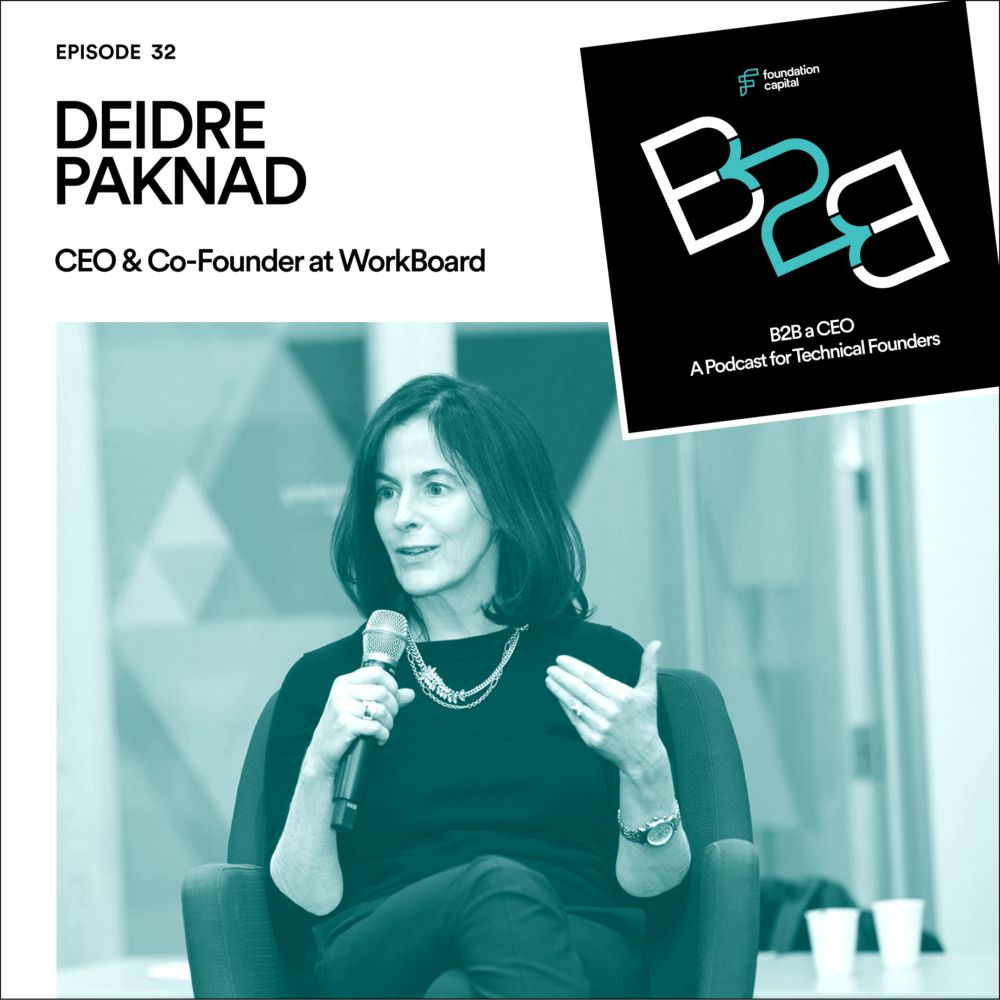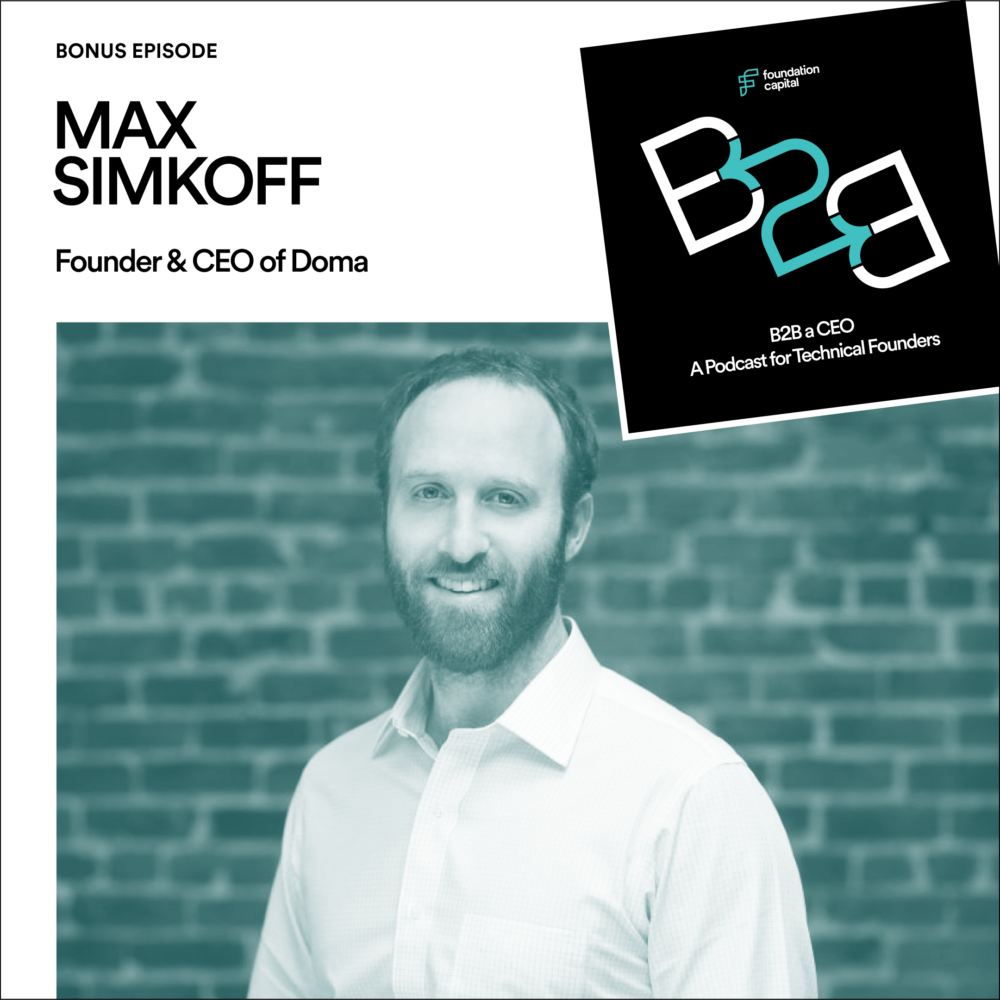Episode 29
How to Grow as a CEO
With Edith Harbaugh, CEO & Co-Founder of LaunchDarkly & Tien Tzuo, CEO & Founder of Zuora
By Ashu Garg
04.21.21
In this installment of our FC BUILD series, my partner Steve Vassallo talks with Edith Harbaugh, co-founder and CEO of LaunchDarkly, and Tien Tzuo, co-founder and CEO of Zuora. Both former engineers, Edith and Tien offer advice for building a startup, discuss scaling in the time of virtual work, and dissect the art of managing others and themselves.
I. The Recap
General Partner Steve Vassallo moderated a conversation at our FC BUILD conference with Edith Harbaugh and Tien Tzuo. Both former engineers turned CEOs, Edith and Tien discuss the many similarities and differences of building and scaling their startups.
From Engineer to CEO
Edith and Tien both began as individual contributors before pursuing a startup: Edith got her start as an engineer frustrated that her work wasn’t used, and convinced her cofounder to break off and pursue an idea they both believed in; Tien wanted to reach beyond the product to talk to the customers and companies that were using it. As they moved from individual creators to managers, both faced the reality that performance no longer came down to personal execution.
On making this transition:
- Work through others — The best managers can stay distant from the work without losing track of what’s being done. As a company scales, the strength of the founder’s vision will no longer be enough to drive execution. You must build the ability to work through others
- Build a system — As a founder, your job is to build a working system: as new layers are added to the organization, the roles you perform will increasingly be passed on to your direct reports.
Working Through Covid
The pandemic pushed both LaunchDarkly and Zuora to go from in-person environments with minimal virtual workers to truly distributed networks.
Edith and Tien have been intentional about adapting to the virtual environment:
- Being virtual — In many ways, it is the great equalizer: people who were virtual before the pandemic now feel like they’re part of the conversation, and many introverts participate more over Zoom.
- At LaunchDarkly, Edith has guided her team to be more explicit and intentional about communication — You can no longer assume people are updated on your work solely because of their proximity. In this way, communication has actually improved during Covid and Edith intends to keep it that way even after we begin to reopen.
- Tien has used Zoom and Google Docs to take a temperature of his team’s mood — At the beginning of each meeting, the group will all paste their current mood in the Zoom chat at the same time, providing a temperature check of the (virtual) room. Similarly, he will occasionally begin discussions by having everyone paste their answer to a question into a Google Doc at the same time. Tien implemented this practice in the hopes it would put all attendees on equal footing.
Growing with the Company
The bias of history favors companies that are still run by their original founders, but a startup requires different types of leadership at its different stages.
As founders that still lead their respective organizations, Edith and Tien offer advice on growing with a company:
- Be willing to change — Your company will require different strategies, leadership, and structure at different times; don’t get stuck in the past.
- Invest in self-awareness — Understand your leadership style, and hire complementary personalities: founders tend to have a visionary style, and can complement it with execution or relationship-oriented team members.
- Hire people better than yourself — Find great talent and empower those people to do their best work.
- Learn to delegate — As your company grows, you can no longer do everything. At a certain point, you need to ask yourself: is a job that needs to be done by me? Every task you take on deprives your company of the opportunity to learn and develop its system.
Published on 04.21.21
Written by Ashu Garg


